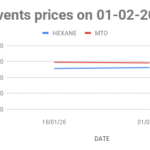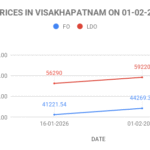VLSFO is Very Low Sulfur Fuel Oil
In a bid to combat air pollution and enhance environmental sustainability, the International Maritime Organization (IMO) implemented a significant regulation change starting January 1st, 2020. This mandate required a substantial reduction in the sulfur content of ship fuels, lowering the permissible sulfur limit from 3.5% to 0.5% by weight. This regulation has led to the increased use of Very Low Sulfur Fuel Oil (VLSFO) in the maritime sector.
VLSFO, a type of fuel oil with a sulfur content of 0.5% or less, has become the primary choice for maritime fuel following the IMO’s new sulfur cap. The transition to VLSFO represents a critical step towards reducing sulfur oxide (SOx) emissions from ships, which contribute to air pollution and pose health risks to humans and the environment.
The maritime industry, which accounts for a significant portion of global trade, has had to adapt swiftly to these new fuel standards. The introduction of VLSFO has not only required changes in fuel procurement and management but also necessitated modifications to ship engines and fuel systems to ensure compatibility with the new fuel type.
While the shift to VLSFO presents challenges, it also brings substantial environmental benefits. The reduced sulfur content in VLSFO leads to lower emissions of sulfur oxides, which in turn helps decrease acid rain and respiratory problems among coastal populations. Additionally, this transition supports global efforts to mitigate climate change and protect marine ecosystems.
The IMO’s sulfur cap is part of a broader strategy to promote cleaner shipping practices and foster sustainable development in the maritime sector. As the industry continues to evolve, VLSFO stands as a testament to the ongoing commitment to environmental stewardship and the pursuit of greener alternatives in global shipping.






